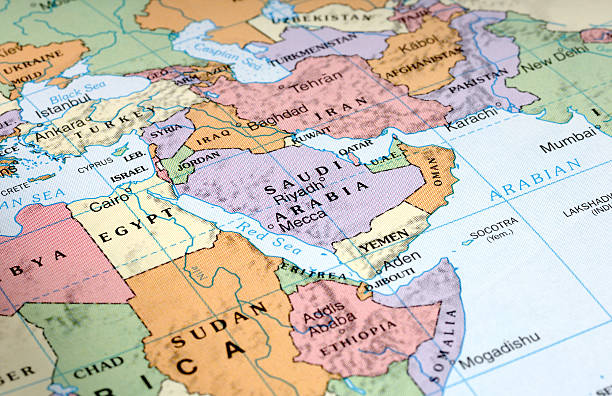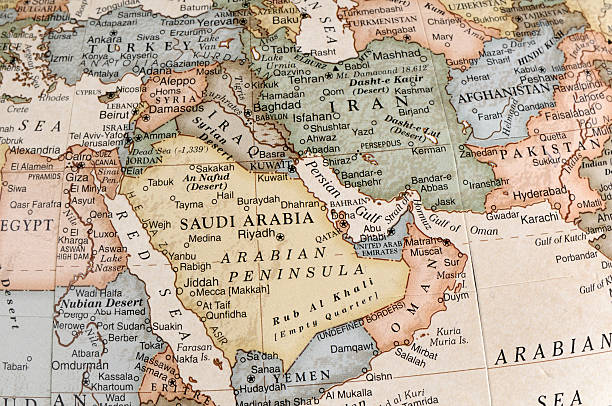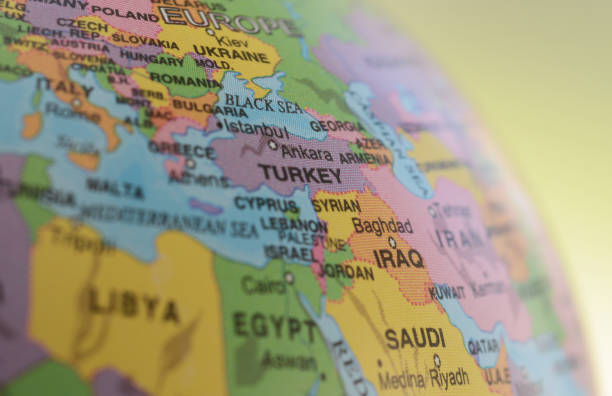
As mentioned in my prior blog post titled Why Turkey needs a National Artificial Intelligence Strategy?, artificial intelligence (AI) is likely to create a new economic order that provides a great advantage to large countries that can produce large personal or industrial data sets, namely the USA and China. The reason for this advantage is the fact that the more data you feed into the AI, the better its application become. The mid-sized emerging markets like Turkey have an inherent disadvantage vis-a-vis the USA and China when it comes to developing AI applications. Turkey should design and implement a national AI strategy at the soonest to implement active policy interventions to catch up with these AI leaders.
Turkey’s recent economic plans have not been very strong in producing national economic strategies around AI. The latest “Information Society Strategy and Action Plan” covers the period 2015-18, yet the 170-page document never mentions “artificial intelligence.” The document has not been updated for the period ahead. On the other hand, the 2018 plan on “The Digital Transformation of the Manufacturing Industry” by the Ministry of Technology and Industry covers certain applications of AI, but as reflected in its title, this document is focused on the manufacturing vertical only.
We propose 3 main pillars for a national AI strategy for Turkey:
- Increasing the amount of your data:
For increasing the amount of national data, a popular way with politicians is enforcing data localization. More than eight G20 countries now have some form of forced data localization policy. Turkey follows the trend, especially in critical industries like finance, health and energy. However, data localization only creates local data centres that employ a few security guards and cleaning staff. What is critical is localizing the value creation from data.
A recently popular analogy is “data is the new oil.” If we extend this analogy, Venezuela has one of the largest oil reserves in the world, but most of all of its oil can only be refined in the USA. While raw oil is “local” in Venezuela, part of the value added from its usage goes to the USA. In the case of AI, the value added by processing the raw data with AI applications is even larger. Data localization should rather prioritize locally developing applications with national data instead of its physical storage space.
AI applications can create larger value when they use different data sets together. Yet, big data generally stays behind institutional silos. These silos are generally created under governmental departments or in corporates. Governments can actively catalyze merging of these silos and make it available to AI startups so that more value is created from national data. For instance, India developed an open code platform, India Stack, to for AI startups to utilize government-controlled data, built on its new universal ID and payments platforms. The EU will force banks to open their data to financial technology companies with its new Payment Services Directive II. Many countries establish interfaces, such as the UK’s Catapult, Taiwan’s ITRI, ETRI in South Korea, and TNO in the Netherlands, to bring government, business and academics, which own different datasets, to work together and diffuse AI applications through different industries.
- Limit the impact of the powers with large amounts of data
As most of the data is now proprietary to corporations, antitrust (competition) and regulatory policies are the main tools for limiting the power that comes with using AI with large data sets. That being said, the USA, which hosts most of the big tech companies, has effectively stopped antitrust enforcement in general for over a decade and is not likely to continue under the Trump administration.
The space for enforcing antitrust law in emerging markets like Turkey for global digital companies alone is limited. Two examples could be given to demonstrate this:
- Since AI companies are valued essentially by the proprietary data sets they have, i.e., large amounts of users, instead of their monetary turnovers, many big mergers stay below the turnover thresholds for antitrust controls in Turkey (and in other countries). For instance, when Facebook acquired Instagram for USD 1 billion in 2012 and Whatsapp for USD 19 billion in 2014, neither had any local (global) revenues – hence no need for merger controls.
- In some industries, global monopolies evolve through a web of local startups. For instance, in ride-hailing, Uber owns 17% of Didi, its equivalent in China, which in turn owns shares in Ola and Grab, equivalents in India and ASEAN; and the Softbank Vision Fund is the major investor in all these companies. While they are likely to enable global coordination of AI applications in ride-hailing, none of these transactions are subject to merger controls in Turkey (or in any other emerging market).
Yet emerging market countries can come up with creative ways of policy-making: For example, on February 1st, 2019, India banned Amazon from owning a product and having the same product in its marketplace at the same time in order to avoid price manipulation against small local merchants. These are important policy discussions that go beyond antitrust law enforcement and invite wider regulatory measures.
- Become a part of the global conversation
Turkey should also align its international economic policy with the new facts of the new AI economy. Despite ups and downs in the accession process, the EU is still the most important economic partner for Turkey. Some EU countries, especially France, Germany and –until March 2019—the UK are great centres for AI research with world-class academic institutions. Some smaller countries like Estonia have become regional hubs, thanks to supportive government policies such as the e-residency and e-government. If you add up the national income of all members, the EU is the largest economy in the world. However, from a digital economy perspective, the EU is still fragmented into 26 different markets, with different regulations and languages. Without a single unified “data market” large enough to compete with the USA and China, it is difficult for the individual EU countries to catch up with these AI leaders. This is why the Digital Single Market might be the single most important EU economic policy. As such, it should also be a central element of Turkey’s relations with the EU, especially the upcoming negotiations for the modernization of the Customs Union, which at the moment only covers manufacturing industries.
Another important venue for the global AI economy conversation will be the G20. Turkey should create a bloc with countries of similar size at the G20 for the discussions around the digital economy. It was actually Turkey’s Antalya Summit in 2015 the first G20 summit at which the word Internet and cybersecurity was mentioned in its communique. Turkey’s G20 Presidency brought innovation into the agenda as a priority area for the Chinese Presidency in 2016, which led to regular digital economy ministers, starting with the German Presidency in 2017. Yet Turkey has not been leading this conversation since then. Turkey can use the MIKTA group, which includes the middle-sized G20 members Turkey, Mexico, Indonesia, Mexico and Australia, to frame the digital economy and AI conversation around the interests of countries of similar size – it is after all the size that matters when it comes to the applications of AI.
Ussal Şahbaz, CEO at EDAM









